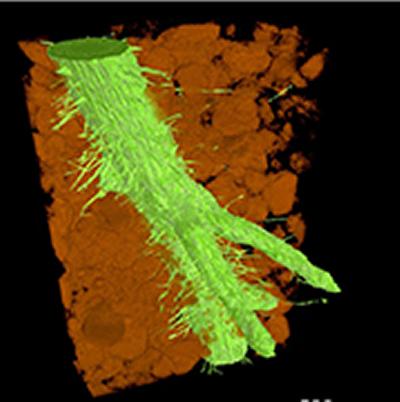Southampton researchers share £1.4m funding to protect soils and safeguard global food security

Researchers from the University of Southampton are part of a project that has received £1.4 million in new funding to explore how plants manipulate soils to extract more water and nutrients, it has been announced today (Monday October 13).
Soil is fundamental to Earth’s life support system, providing food, storing and filtering water, cycling nutrients and providing a habitat for many species. It is at the heart of our interaction with the environment and central to the responsible management of our planet. The world will need to produce 50 per cent more food by 2030 to feed a growing world population and soil science is crucial to meeting this challenge.
Southampton is involved in one of four projects, with combined funding of £5 million, supported by a BBSRC (Biotechnology and Biological Sciences Research Council) led initiative known as SARISA (Soils and Rhizosphere Interactions for Sustainable Agri-ecosystems).
Researchers have been funded to investigate the interactions between soil and the plant roots through the initiative, which was developed with NERC (Natural Environment Research Council) under the Global Food Security (GFS) programme.
They will focus on the thin interface of soil that develops at the surface of roots and is termed the rhizosphere.
Professor Tiina Roose, from the Bioengineering Sciences Research Group at University of Southampton, said: “We are investigating how various root traits change the physical properties of soil to improve the efficiency with which crops can capture water and nutrients. We also have amazing capacity to visualise roots in soil using X-Ray computed tomography, so we can see what root traits do to soils.
“The ultimate outputs will be data and numerical models that will help plant breeders identify optimal root traits for more sustainable agricultural production.”
NERC’s Chief Executive, Professor Duncan Wingham said: “Soil is central to the UK economy, generating an annual income of £5.3 billion, and providing many essential ecosystem services. But erosion, pollution and nutrient degradation are damaging this vital resource, threatening its ability to provide food and water security as well as climate mitigation. The outcomes of these initiatives will help us to manage and use this resource more responsibly into the future for the benefit of all society.”
Professor Melanie Welham, BBSRC Executive Director of Science, said: "Soil research is an area of strategic importance for BBSRC, NERC and all the Global Food Security programme partners, particularly in relation to the 'sustainable enhancement' of agriculture. These initiatives are great examples of UK public funders working in partnership through GFS to support excellent interdisciplinary research in this area.
“Good management of land and soils is vital to maintain soil health, nutrient cycling and biodiversity - essential to help provide enough food for a growing global population while protecting ecosystems in the wider environment and the other benefits they provide.”
The University of Southampton will work with the University of Aberdeen, University of Dundee and the James Hutton Institute on the project.
